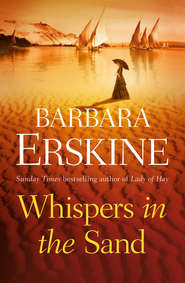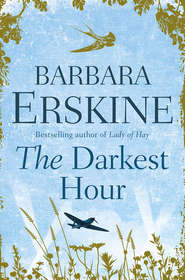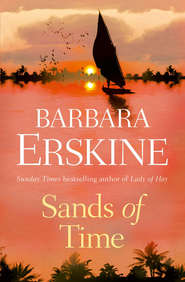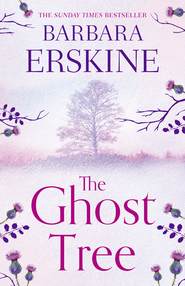По всем вопросам обращайтесь на: info@litportal.ru
(©) 2003-2024.
✖
On the Edge of Darkness
Автор
Год написания книги
2019
Настройки чтения
Размер шрифта
Высота строк
Поля
After only a few minutes’ leafing half-heartedly through a book on spiders he threw it down on the table and went out onto the landing. He listened for a moment, then he ran down the narrow upper flight of stairs, then the broader flight below and went to peer once more into the kitchen. It was as cheerless and empty as before.
It was a long time before he plucked up enough courage to knock on the door of his father’s study.
Thomas Craig was sitting at his desk, his hands folded before him on the blotter. He was a tall, rangy man, with a shock of dark hair threaded with silver, large, staring pale blue eyes and his skin, normally high-coloured, was today unusually pale.
‘Father?’ Adam’s voice was timid.
There was no response.
‘Father, where is Mother?’
His father looked up at last. There was a strange triangle of livid skin beneath each high cheekbone where his face had rested on the interlinked fingers of his hands. He propped himself wearily on his elbows on the desk, then cleared his throat as though for a moment he found it hard to speak. ‘She’s gone,’ he said at last, his voice lifeless.
‘Gone?’ Adam repeated the word uncomprehendingly.
‘Gone.’ Thomas lowered his face back into his hands.
His son shifted uncomfortably from one foot to the other. An inexplicable pain had settled in the pit of his stomach. He didn’t dare look at his father’s face again, fixing his eyes instead on his own ragged plimsolls.
Thomas sighed heavily. He looked up again. ‘Mrs Barron has seen fit to hand in her notice,’ he said at last, ‘so it would seem we are alone.’
Adam swallowed. His voice when he spoke was very small. ‘Where has Mother gone?’
‘I don’t know. And I don’t wish to.’ Abruptly Thomas stood up. Pushing back his chair he walked over to the window and stood looking out into the garden. ‘Your mother, Adam, has committed a grievous sin. In the eyes of God, and in my eyes, she is no longer part of this family. I do not wish her name to be mentioned in this house again. Go to your room and pray that her evil ways have not corrupted you. A night without supper will do you no harm at all.’ He did not turn round.
Adam stared at him, barely taking in what he had said. ‘But, Father, where has she gone?’ Little panicky waves of anguish were beginning to flutter in his chest. He wanted his mother very badly indeed.
‘Go to your room!’ Thomas’s voice, heavy with his own grief and anger and incomprehension, betrayed the depth of his emotion for only a moment.
Adam did not try to question him again. Turning, he ran into the hall, out through the kitchen and on into the garden. It was growing dark, but he did not hesitate. Loping round the side of the house he headed down the silent street towards the river once more. Slipping on the rocks in the dark he felt his feet sliding into the icy water but he did not hesitate, plunging into the woods and climbing as fast as he could up the hillside.
Once he stopped and turned. The manse was in darkness save for the single point of light, the lamp in his father’s study. From where he stood he could see the kirk and the dark trees round it, and the whole village, where one by one the lights were coming on, the evening air hazed with the fragrant blue smoke from the chimneys. The village was friendly, busy, warm. He knew every single person who lived in those houses. He was at school with children from many of them, in the same class as five other boys all of whom he had grown up with.
He stood looking down for a few minutes, feeling the wind, cold now, on the back of his neck, and he shivered. There were goosepimples on his thin arms beneath his sweater. He felt sick. Where had his mother gone? What had happened to her? Why hadn’t she told him where she was going? Why hadn’t she taken him with her? Why hadn’t she at least left him a note?
It was better to keep moving. Walking in the almost-darkness amongst the trees with the flash of white water on his right needed all his concentration. If he walked he couldn’t think. He didn’t want to think.
Turning, he scrambled on, feeling his wet plimsolls slide on the track, and he grabbed at the wiry branches of the larch which hung over him to stop himself falling as he headed for the stone.
It was completely dark when he reached the cross-slab at last. He doubled over, panting, aware that the moment he stopped moving the icy wind would strip away his bodyheat within seconds. He didn’t care. The moment he stopped moving he could no longer fend off the misery which was flooding through him. His mother. His adored, lovely, bright, pretty mother was gone and, he shuddered at the memory of his father’s words. What had she done? What could she have done? He wrapped his arms around himself, hunching his shoulders. He had never felt so alone, or so afraid.
She had never seen the boy come up here in the dark before. Behind the hills in the east a silver glow showed where soon the half moon would rise above the black rocks and flood the countryside with light. Then she would be able to see him more clearly. Quietly she waited.
Behind her, her brother Gartnait, five years her senior, was packing up his tools and stretching his arms above his head until his joints cracked. Between one moment and the next a black silhouetted moon-shadow ran across the ground at his feet. The light caught the gleam of an iron chisel and he stooped to pick it up.
Brid crept forward a little. The boy had a thin, attractive face with a child’s nose still, but his shoulders and knees were beginning already to show the coltishness which would come before he developed the stature of a man. She stared at his clothes, colourless in the pale light, and she crept nearer. He never seemed to do much when he came up to the hill. Sometimes he sat for hours, his arms wrapped around his legs, his chin on his knees, just staring into space. A few times he had come up to Gartnait’s stone and touched the carving with his finger, tracing the lines. Twice, in the hot months, he had stretched out on the hot ground and slept. On one of those occasions she had drawn closer, until she was standing over him and her slim shadow had touched his face. He had frowned and screwed up his nose and put his hand to his forehead, but he hadn’t opened his eyes.
She could feel his misery. It was sucking at her energy, swirling round him in a cloak of black waves which lapped out into the darkness and touched her with its cold.
Perhaps her sympathy was so great it had become tangible; whatever the reason, he looked up suddenly, startled as though he had heard something, and he looked straight at her. She saw his eyes widen. Instinctively his hand brushed his cheek and he straightened his shoulders to hide his misery. His momentary fear at seeing a figure in the shadows gave way to relief when he realised it was the girl he had seen earlier and he made a brave attempt at a smile. ‘Hello.’
She frowned. She did not recognise the word, though the smile was friendly. She stepped forward.
When she spoke to him it was in the language of her birth, the language of the ancient Picts.
His heartbeat had steadied a little. The exhaustion of the steep climb, for the second time that day, and then the girl appearing out of the darkness of the trees had made him gasp for breath. He stared at her, more puzzled than startled now. She had said something to him in words he didn’t understand. Gaelic, he supposed, a language his father considered to be barbaric. He shrugged at her. ‘I don’t understand.’
Even in that dim light he could see the brightness of her eyes, the pert tilt of her nose and chin. She was wearing a rough dress which looked as though it were made of some sort of leather.
She shrugged back, mimicking him, and then she giggled.
He found himself laughing too and suddenly daring she moved closer and touched her finger to his cheek, removing imaginary tears. Her mime was clear. Why are you sad? Cheer up. Then her hands dropped to his and she gave a theatrical shiver. She was right. He was very cold.
He wasn’t quite sure how he came to follow her. His misery, his cold, his hunger, all were persuasive. When she caught his hand and tugged at it, miming food in her mouth, he nodded eagerly and went with her.
He followed her towards the stone, his fingers brushing across the well-known shapes as he walked past it. There was a drift of mist across the path and he hesitated, but when she tugged again at his hand he went on, stopping only when he saw her brother. The tall young man, his tools now stowed in a leather bag slung over his shoulder, looked as startled as he was himself. He spoke quietly and urgently to the girl and she retorted with words quite obviously cheeky. It was then she introduced herself. She pointed to her chest. ‘Brid,’ she said firmly. She pronounced it Breed. ‘Gartnait.’ This was said thumping the young man’s shoulder.
Adam grinned. He pointed to his own stomach. ‘Adam,’ he said.
‘A-dam.’ She repeated the word softly. Then she laughed again.
They walked for about twenty minutes around the shoulder of the ridge, following a faint deer track through the heather before Adam saw in the distance below them the flickering light of a fire. As they scrambled down towards it he smelled meat cooking. Venison, he reckoned, and the juices in his mouth ran. He hadn’t eaten since lunchtime. He refused to think about the empty cold kitchen at home, concentrating instead on his new friends.
At the sight of their destination he frowned slightly. It was no more than a round ramshackle bothy, thatched with rushes, hidden in a fold of the hill beside a tumbling burn. The fire, he saw as they drew closer, was being tended by a woman, from her looks the mother of Brid and Gartnait, who, he had already guessed, were brother and sister. The woman, tall and slim, very erect when she straightened from poking the logs beneath her cooking pot, had hair as dark as her daughter’s, and the same clear grey eyes. Throwing down her makeshift poker she made him welcome, a little shyly, and pointing to a fur rug spread on the ground near the fire indicated that he sit down. Her name, Brid told him, was Gemma. Gartnait, he saw, had gone to wash the stonedust from his hands in the stream. Brid too had disappeared inside the bothy. She returned seconds later with four plates and a loaf of bread which she broke into four pieces and laid on the plates near the fire.
The meal he was given was, he thought, the best he had eaten in his whole life. The bread was rough and full of flavour, spread with thick creamy butter. With it they ate – with their fingers – venison cut into wafer-thin portions by Gartnait’s razor-sharp knife, mountain trout, cooked on slender twigs above the fire, and wedges of crumbling white cheese. Then there was more bread to mop up the rich gravy. To drink they had something which Adam, who had never touched alcohol in his life, suspected was some kind of heather ale. Mesmerised by the fire and the food and by his smiling though silent companions he drank heavily and within minutes, leaning back against a log, he was fast asleep.
He was awakened by Brid’s hand on his knee. For a moment he couldn’t think where he was, then he realised he was still outside. To his surprise he found he was lying warmly wrapped in a heavy woollen blanket. The fuzz of the wool was soaked with dew as he sat up and began to unwrap himself, but inside he was warm and dry.
‘A-dam.’ He loved the way she pronounced his name, carefully, liltingly, a little as though it were a French word. She pointed up at the sky. To his horror he could see the streaks of dawn above the hill. He had been out all night. His father would kill him if he found out. Frightened, he began to scramble to his feet.
Behind Brid her mother was bending over a brightly burning fire. Something was simmering in the pot suspended above it. He sniffed and Brid clapped her hands. She nodded and, taking a pottery bowl from her mother, spooned some sort of thin porridge into it. Taking it from her he sniffed, tasted, and burned his tongue. As breakfasts went it was pretty tasteless, not nearly as nice as the meal the night before, but it filled his stomach and when at last Brid led him back the way they had come he was feeling comparatively cheerful.
The cross-slab was wrapped once more in mist as they passed close beside it and he walked onto the hillside and stood looking down at his own valley, still wrapped in darkness. Brid pointed, with a little smile, and Adam stepped away from her. ‘Goodbye,’ he said. ‘And thanks.’
‘Goodbye and thanks.’ The girl repeated the words softly. With a wave she turned and vanished into the mist.
The manse looked bleak in the cold dawn light. There was still no smoke coming from the chimneys and the front door was locked. Biting his lip nervously Adam ran soundlessly round the side, praying under his breath that the kitchen door would be open. It wasn’t. He stood there for a moment undecided, looking up at the blank windows at the back of the house. The awful misery was returning. Swallowing it down he turned and headed back into the street.
The manse might still be asleep but the village was stirring. The sweet smell of woodsmoke filled the air as he turned up Bridge Street and into Jeannie Barron’s gate and knocked tentatively at the door. The sound was greeted by a frenzy of wild barking.
The door was opened seconds later by Jeannie’s burly husband, Ken. A pretty sheltie was leaping round his heels, plainly delighted to see Adam, who stooped to give her a hug. The dog had been his once. But for some reason Adam had never understood his father had disapproved of his son having a pet and the puppy had been given to Jeannie. Ken stared down at Adam with a surprised frown and then turned and called over his shoulder, ‘Jeannie, it’s the minister’s lad.’
Jeannie’s kindly pink-cheeked face appeared behind him. She was wearing her overall just as she always did at the manse.
‘Hello, Mrs Barron.’ Adam looked at her and to his intense embarrassment his eyes flooded with tears.
‘Adam.’ She pushed past her husband and enveloped the boy in a huge plump hug. ‘Oh, my poor wee boy.’ He was almost as tall as she was but for the moment he was a small child again, seeking comfort and warmth and affection in her arms.











